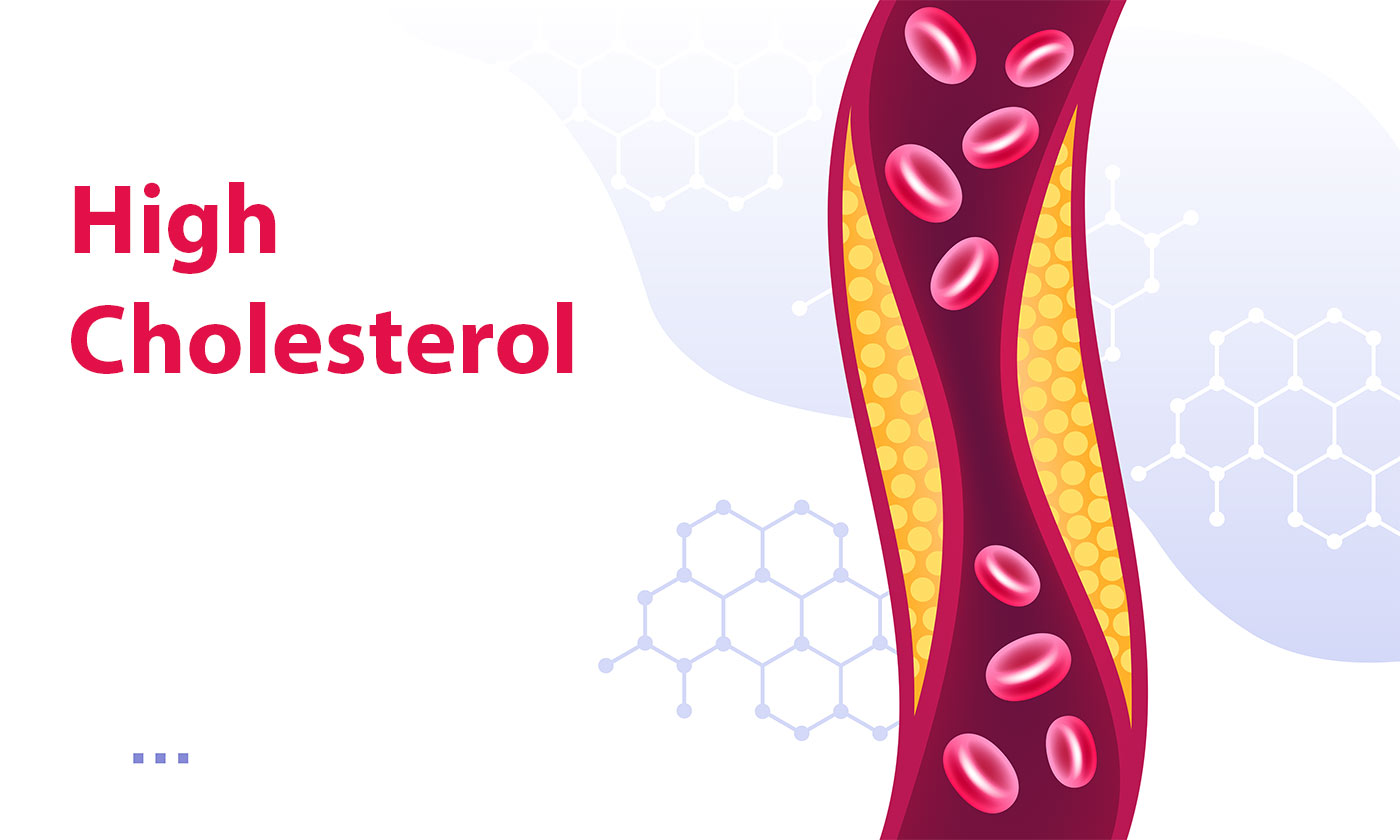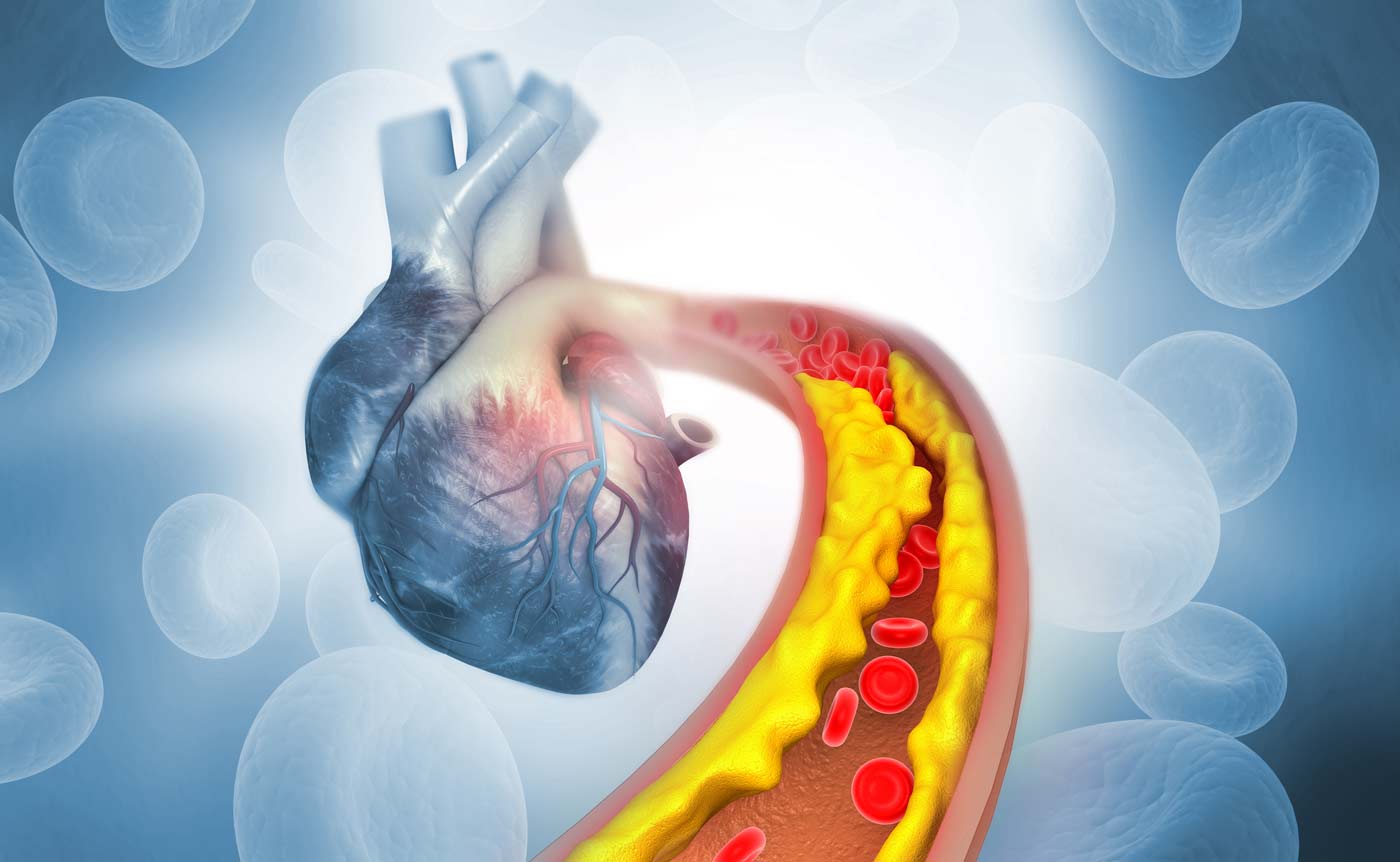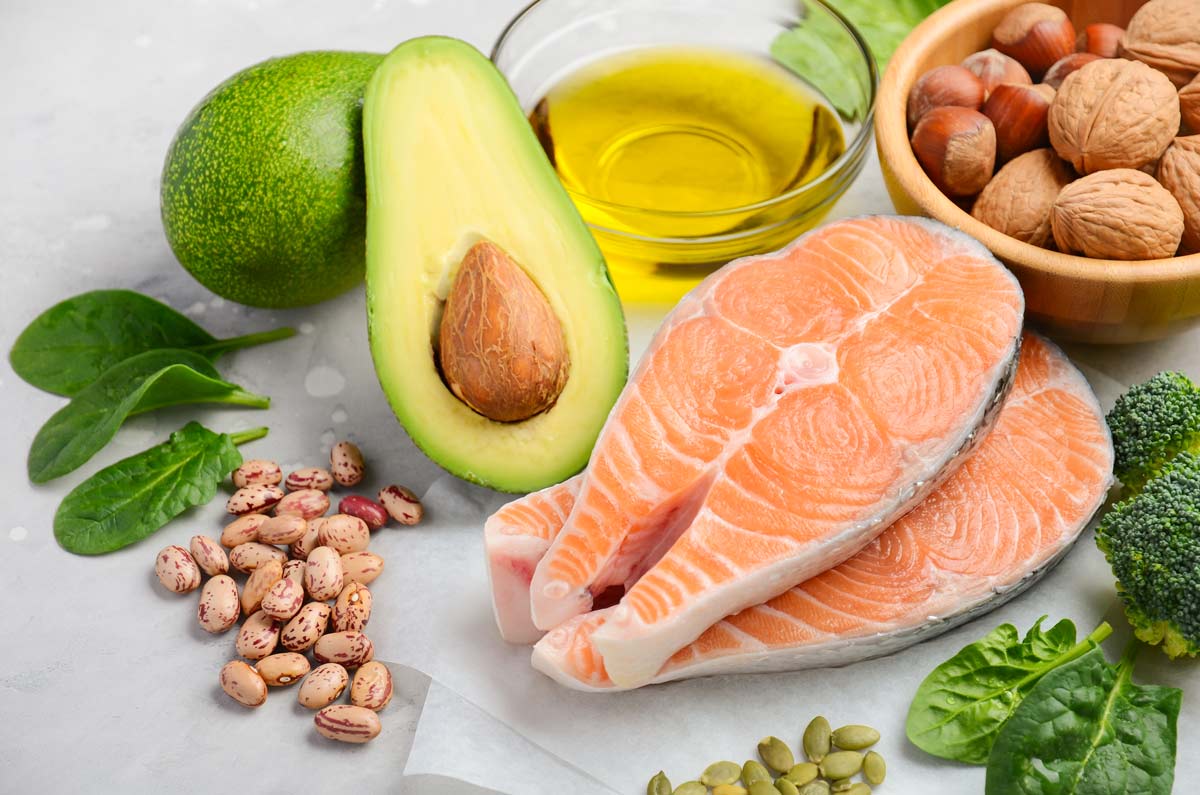What You Can Do to Protect Your Heart Health
According to the CDC, high cholesterol is an issue that almost 40% of Americans face.
While cholesterol in itself is actually an integral part of your body’s regulatory processes, we need to make sure that our diets and lifestyles help us maintain normal cholesterol levels.
In this article, we’ll give readers a clear overview of what cholesterol actually does in the body and why it’s so important to ensure normal cholesterol levels at all times.
We’ll look at the different types of cholesterol, as well as how we can manage them with the right diet, lifestyle, and medication.
If you find that we didn’t answer all of your questions about how to lower cholesterol safely and effectively, please feel free to reach out to our team for more information.

Before we talk about bad cholesterol, we need to talk about cholesterol in general.
According to Heart.org, cholesterol is a waxy substance in your body used to build cells. This waxy substance, which is actually a type of fat, moves through your bloodstream and helps the membranes of your cells create layers. These cell layers act as protection for your cell from toxins and bacteria that could damage them.
Cholesterol is formed in your liver.
To be able to make cholesterol, you need to get enough Vitamin D, which can be done by getting enough sunlight throughout the day and by consuming foods high in vitamin D. If you follow a healthy diet and lifestyle, your liver will be able to produce and regulate the perfect amount of cholesterol to keep your cells and body health.
Another interesting fact about cholesterol is that other than being produced in the human body, it can only be found in foods and ingredients that come from animals.
This is why plant-based alternatives, like margarine, are better for people who suffer from high cholesterol compared to animal products like butter or dairy.

However, according to the Cleveland Clinic, if we have low-quality diets and sedentary lifestyles, our livers might produce too much cholesterol which then starts blocking your arteries as these lipids move through your bloodstream.
These blockages then lead to issues like high blood pressure, heart disease, and even strokes caused by blood clots moving through the brain.
So, how do you know if your cholesterol is too high?
According to the CDC, one of the most important and accurate high cholesterol symptoms is a total blood cholesterol of ≥ 200 mg/dL.
This measurement shows that the concertation of cholesterol in your blood is too high and you might be at risk of developing serious health issues later on.
People who have high cholesterol might experience high cholesterol symptoms like high blood pressure, an irregular heartbeat, fatigue, headaches, and more.
The fastest and possibly most accurate way to determine whether or not your cholesterol levels are too high is to have a blood test done at your local health clinic.
There is more to cholesterol than just good and bad.
According to Medline Plus, there are three main types of lipoproteins that attach lipids and proteins together so that these proteins can move through your bloodstream. These are HDL, LDL, and VLDL.
Interpreting The Numbers
Check what your cholesterol levels should be.
*This is just a guide. The levels you should aim for might be different. Ask your doctor or nurse what your levels should be.
| Result | Healthy level |
|---|---|
| Total cholesterol: | 5 or below |
| HDL (good cholesterol): | 1 or above |
| LDL (bad cholesterol): | 3 or below |
| Non-HDL (bad cholesterol): | 4 or below |
| Triglycerides: | 2.3 or below |
For most children, the National Heart, Lung, and Blood Institute recommends one cholesterol screening test between the ages of 9 and 11, and then be repeated every five years after that.
If your child has a family history of early-onset heart disease or a personal history of obesity or diabetes, your doctor might recommend earlier or more-frequent cholesterol testing.
There are various ways that high cholesterol can be treated, including taking specifically formulated medications as prescribed by a doctor, or undergoing medical treatment or even surgery at a hospital or medical center.
Like we’ve discussed, the best way to treat cholesterol naturally is by educating yourself about the right products and options, and implementing them correctly.
According to Mayo Clinic, knowing how to lower high cholesterol means knowing how diet and exercise influence your overall health and wellbeing. When we change certain factors about our lifestyles, like becoming more active or eating foods high in “good” fats and low in “bad” fats, we can effectively lower bad cholesterol levels and reduce our risk of high blood pressure and heart disease.
According to Medical News Today, some of the best ways to lower bad cholesterol levels include:

Increasing your intake of foods high in omega 3 fatty acids, vegetable oils like high quality cold pressed olive oil, and nuts can help protect you from high cholesterol caused by monosaturated fats.
Foods high in refined carbohydrates are not good for your health, and you should ideally opt for foods like wholegrains, vegetables, and fruits.
With this in mind, be sure to reach out to your primary healthcare provider before making significant changes to your diet or exercise routine. If you’re unsure of which changes to make, feel free to reach out to our team for more information.
By staying physically active every day, you can lower the level of LDL cholesterol while raising your HDL cholesterol. This will also help you maintain a healthier bodyweight which, in turn, will help your body maintain healthy processes.
Smoking cigarettes and drinking alcohol are known to reduce liver function.
And by reducing your liver function, you could be increasing your risk of high cholesterol. This is because your liver no longer has the necessary level of function to remove cholesterol from your bloodstream. This then leads to a buildup of fat and plaque in your arteries which, like we explained earlier, leads to an increased risk of heart disease and high blood pressure.

According to various studies, higher bodyweight and obesity are connected to increased risk of high cholesterol levels. By losing just 3 to 5% of your body weight (if you are obese or overweight) could help reduce your bad LDL cholesterol significantly.
These four main changes will help your body regulate its bodily functions like improving liver function and strengthening your heart.
These changes, however, don’t necessarily only need to happen once you’ve realized you’re no longer at normal cholesterol levels. You can effectively prevent issues like high cholesterol by being proactive about your health and making these changes as early as possible.
There are certain foods that can lower cholesterol in the bloodstream.
These are generally wholegrain wheats, fruits, and vegetables. However, they can also include omega-3 fatty acids and nuts among other ingredients.
Omega-3 fatty acids are a great way to effectively lower the number of triglycerides in your blood, and they can be found in foods and ingredients like fish oil. However, they can also be consumed as supplements that can be purchased over the counter at any pharmacy.
Another great option is consuming olive oil rich in polyphenols to reduce your LDL cholesterol.
It’s important to note that while healthier eating is a great way to reduce your LDL cholesterol in your bloodstream, you’ll also need to complement your diet with regular exercise.
As always, we recommend speaking to your healthcare provider before you consider adding an omega-3 fatty acid supplement to your diet – as this could counteract with certain medications or treatments.
Some other ways that people can cut down on the LDL cholesterol in their blood and increase the HDL cholesterol instead include:
Processed foods like cheese and butter are high in triglycerides.
Instead, try to cut out these products from your diet altogether or opt for healthier snack choices like wholegrain wheats, fruits, or vegetables. Cook with olive oil instead of butter; vegetable oils like olive oil are better for your health than animal products like butter or lard.
While we mentioned that smoking too much can increase the level of LDL cholesterol in your blood, it’s important to note that stopping smoking entirely has incredible health benefits for managing your high cholesterol levels and helping your liver retain its optimum function.

While stress doesn’t necessarily seem like something you can control, it’s important to mention that high levels of stress are usually linked to high levels of LDL cholesterol.
By managing your stress through exercise, therapy, and medication, you could be able to control your high cholesterol symptoms and help your body go back to normal cholesterol levels.
Cholesterol is an important and very useful substance in the body that your brain, heart, and nervous system would never be able to function without.
However, it’s important to make sure you follow the right dietary habits and lifestyle choices to make sure that your LDL cholesterol stays low while your HDL cholesterol stays higher.
For more information about how you can manage your cholesterol or lower LDL cholesterol through better food choices, feel free to reach out to us today and we’ll answer any questions you might have.